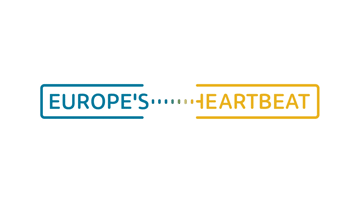The German limited liability company (Gesellschaft mit beschränkter Haftung, GmbH) is the most widely used legal form for corporations. It combines high flexibility with relatively few obligations. Corporations like the GmbH based in Germany or with an executive board in Germany are liable to corporate taxation on globally generated income. Setting up a GmbH is easy and uncomplicated and can be accomplished in just a few steps.
Authentication and translation
Please note that specific requirements regarding authentication and translation apply, depending on the legal form and origin of the foreign company. It is advisable to consult a German notary at an early stage for individual advice.
Online formation
From August 2022 onward, online formation of a GmbH by way of cash contribution will be possible - enabling a remote and faster incorporation procedure.
The online notarization takes place in a video conference between the notary and the parties involved. The German Federal Chamber of Notaries provides a video communication system with a two-step identification procedure that requires an electronic proof of identity (eID).
The following German eIDs meet the current requirements for secure identification within the online formation procedure:
-
German national ID cards with eID function (for German nationals)
-
German eID cards (for EU/EEA citizens)
-
German electronic residence permits with eID function (for nationals of third countries)
-
Electronic identification schemes issued by another EU/EEA member state in accordance with the eIDAS regulation and a corresponding high assurance level
Electronic signature
The signatures required for the incorporation are obtained by means of a qualified electronic signature.
Articles of association
Articles of association
The articles of association shape the identity and constitution of the company. Thanks to the large scope for contractual design, the GmbH is a very flexible corporation form. Mandatory content includes share capital, shareholders and respective shares held, business name, registered office, and company purpose.
For a standardized formation of a GmbH, model articles of association (for set-ups by cash subscription with a maximum of three shareholders and one managing director) are provided. These articles must still be notarized, but for a reduced fee. In addition, sample deeds are also provided by the chambers of industry and commerce (Industrie-und Handelskammer, IHK).
Share capital of a GmbH
Share capital of a GmbH
The GmbH requires a minimum share capital of EUR 25,000. At the time of registration, at least half of the minimum capital (i.e. EUR 12,500) must be actually and verifiably contributed on a bank account. The capital is not a deposit and, to certain extent, can be used for the company’s business operations.
The share capital can also be contributed in kind (e.g. real estate or patents). A contribution in kind must be agreed upon in the articles of association, a valuation report is necessary, and the asset must be fully contributed.
Registration of the new company
Registration of the new company
Registration with the German commercial register via a German notary is mandatory. From August 2022 onward, online procedures allowing commercial register applications will be significantly extended.
Once registered in the commercial register, the GmbH becomes a legal entity and the limited liability exists.
Before business operations are started, the competent local trade office (Gewerbe-/Ordnungsamt) must be notified about the planned activity.
Further requirements
A business license or permit is not necessary for registering the business in the majority of cases. In some sectors, a permit or authorization might be required.
”Mini-GmbH“
The Mini GmbH (Unternehmergesellschaft UG, haftungsbeschränkt) is a start-up version of the GmbH with a share capital of less than EUR 25,000. It is often referred to as “Mini-GmbH”.
The Mini-GmbH is a private limited liability company with a minimum capital of less than EUR 25,000. In order to compensate the initial absence of capital, the company has to retain a quarter of its annual profit until it has accumulated the minimum shareholder capital of an ordinary GmbH (i.e. EUR 25,000). The accumulated capital can then be converted into share capital and the Mini-GmbH altered into a standard GmbH.
Mini-GmbH formation
The Mini-GmbH is generally subject to the same legal duties and rights as the standard GmbH (excepting the above-mentioned specific provisions). The formation procedure is also the same as that for a standard GmbH. However, the share capital has to be contributed fully and contributions in kind are not possible when establishing a Mini-GmbH.







